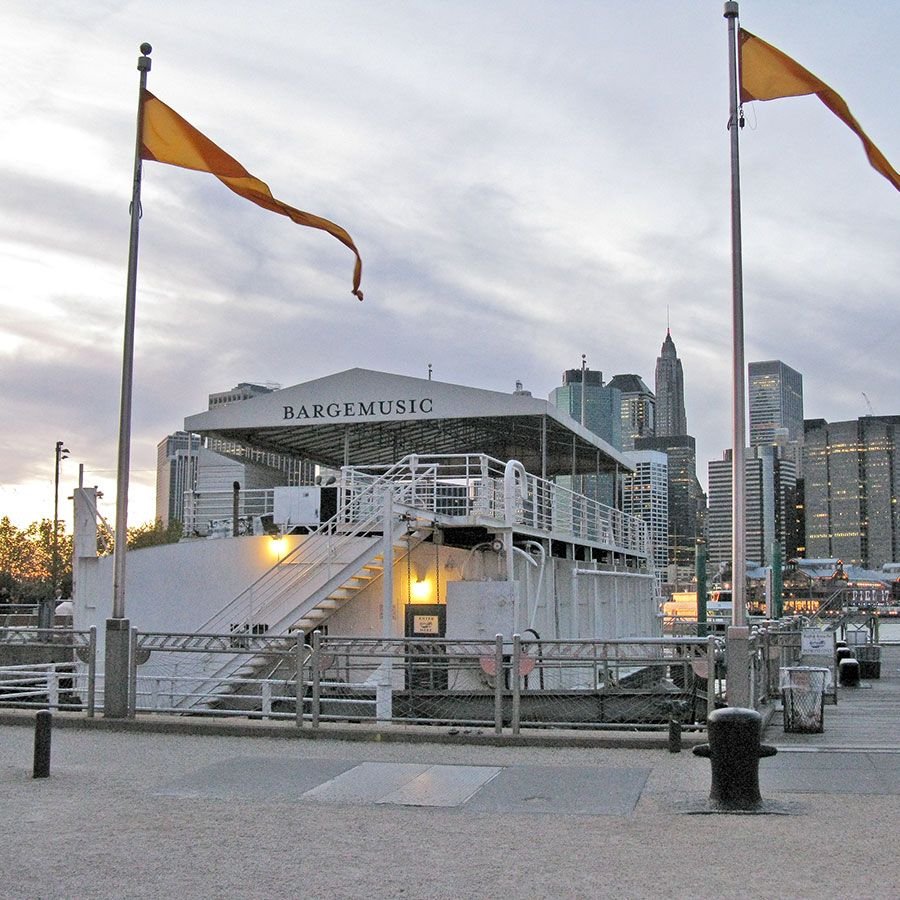Bedazzled By Bargemusic, Brooklyn, and Bartok

I don’t prolifically listen to classical music, nor do I play an instrument. But whenever I hear classical music live, I follow a routine. I’ll close my eyes, ruminate over the new familiar and strange sounds, and picture myself in a different part of the world. Sometimes, I’m nestled in a hammock under the toasty Hawaiian sun. Other times, I’m screaming, triumphant, at the top of Yosemite’s Half Dome. Attending Bargemusic’s concert on June 12 captured my imagination so explicably not only with sounds but also, in the most surprising ways, with movement. From the start, the musicians showed off their vibrato and stunned with impeccably clear melodies. But the most fascinating part, the aspect that made this performance worthwhile, was the boat itself.
Creeping up to the venue, I thought of the boat as quaint, serene even. I was mistaken. Stepping on the board sent me into a clumsy tumble as I shifted left and right to catch my balance. With chairs lined in orderly rows, the boat tilted and swayed, and bodies tilted and swayed mimicking the soft waves. Music commenced, filling the air the elegant noise, and the swaying assumed an unpredictable quality. When the music softened to a peaceful stanza, the boat swayed gingerly as a rocking chair mellows passively on a lazy Sunday afternoon. When the musicians pounded their instruments and increased their tempo, I ostensibly felt the boat tremble and wobble more — movements that inspired flashes of sailors lost at sea. The New York skyline wiggling behind the performers added another reminder about the music and boat’s unpredictability.
The Ulysses Quartet, named after Homer’s heroic journey and informed by the four members living in “close proximity to the resting place of former U.S. President Ulysses S. Grant in Upper Manhattan” delivered excitement and vigor to Brooklyn on a Saturday afternoon. The Quartet embarked on a wild journey playing their first piece, the Hayden String Quarter in B minor. From the start, synchronized chromatic scales and crescendos stirred up images of climbing a stair built on clouds. At one point in the third movement, the two violins playfully dueled against the cellist and violist as if engrossed in an eloquent debate. The last movement impressed me the most, particularly Christina Bouey’s first violin solo that rang in my ears after the piece ended.
After a quick break, second violinist Rhiannon Banerdt endorsed the Bartok String Quartet No 5. as one of her favorites to play from the “father of the 20th-century string quartet” with “intricate beautiful palindromes.” The quartet opened with jarring chords and each musician interrupting another’s scales. In the fourth movement, the musicians adopted skippy tempos and plucking reminiscent of drunk sailors. Throughout this piece, Grace Ho, the cellist, amazed me with her musical depth — the soft decrescendos and her melting gestures moved me from rocky ambivalence to peaceful meditation.
Beyond the performance, external sounds were not completely forgotten. Honking taxis, crashing waves, and muffled voices from the pier served as a constant reminder of the modest world outside the venue. When I come to Brooklyn again, and I most certainly will, Bargemusic will be on the top of my list.
Jess Eng is a Blues DJ, a reporter for WHRB News and the host of Gouda Talks—listen to previous episodes here and here!
Feature Image Credits goes to _bargemusic._com